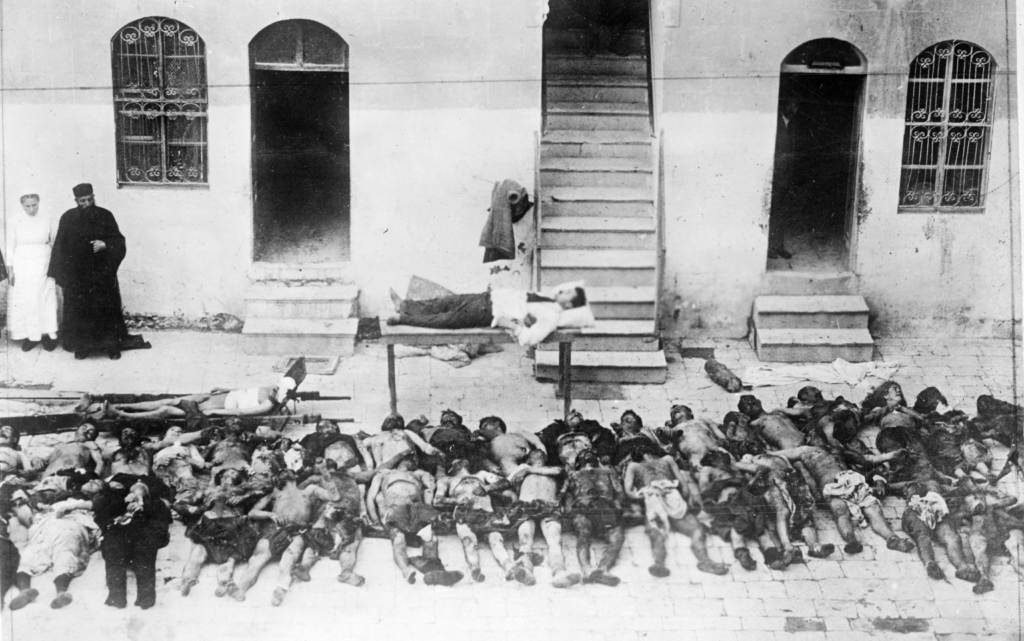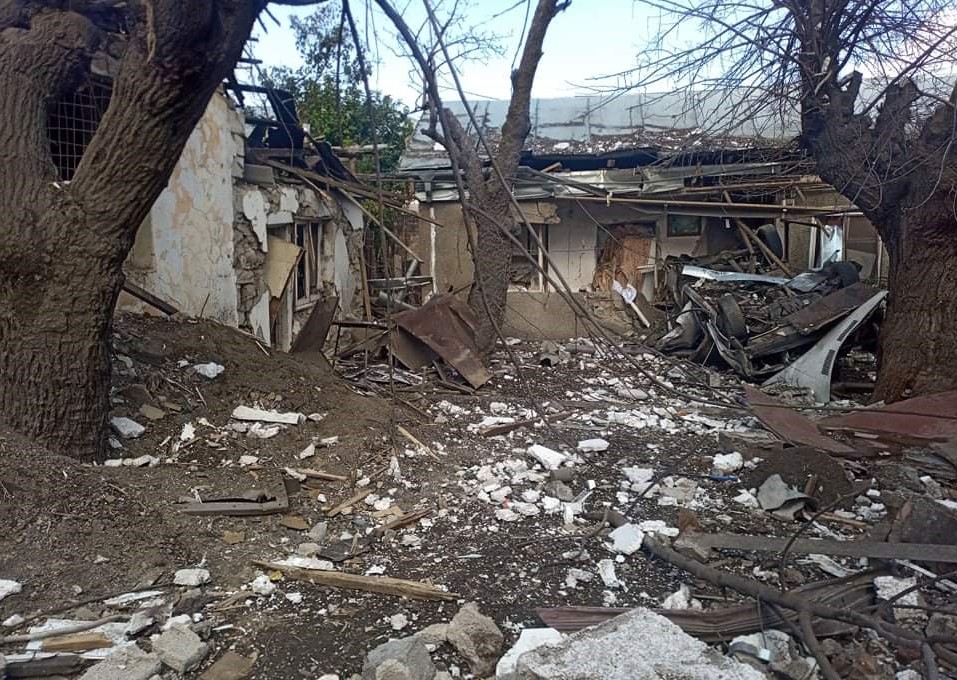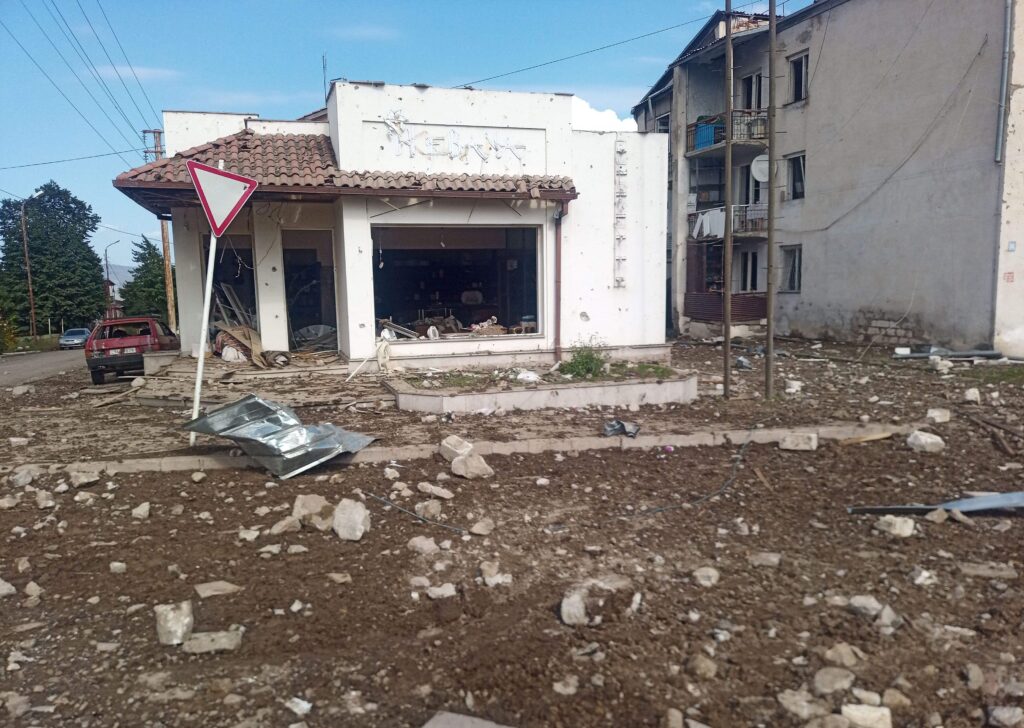As the Azerbaijani army has attacked the disputed Nagorno-Karabakh territory with the support of Turkey, NATO members – including Estonia – should either take full responsibility for Turkey’s actions or must deprive Turkey of the membership in NATO, Rafik Grigoryan, the president of the House of Representatives of the Estonian national minorities, writes.
On 27 September, the Azerbaijani army, with the support of the Turkish air force and the terrorist fighters deployed to Azerbaijan in advance, launched a large-scale armed offensive against Artsakh in the disputed Nagorno-Karabakh territory.
Assessing the Karabakh war, the media and politicians of many countries often hold useless discussions about who first started military operations, overlooking the most important thing – the context of the conflict. Many do not even ask the question, “what are the aims and reasons for the new war?”
Both the president of Turkey, Recep Erdogan, and the president of Azerbaijan, Ilham Aliyev, have more than once openly expressed their dissatisfaction with the work of the OSCE Minsk Group, the protracted peace negotiations and the desire to resolve the controversial issue by the use of force. Neither the Republic of Artsakh nor the Republic of Armenia made such statements. They have always declared their commitment to a peaceful solution to the conflict within the framework of the OSCE Minsk Group.
The “counterattack”, as the Azerbaijani authorities call their sudden, pre-planned and organised military offensive against Karabakh, is an attempt to finally solve the contentious issue by military means. To hide the insidious nature of its actions, the Azerbaijani-Turkish propaganda machine, whose actions reflect the eastern proverb “if you want to rob a bank, criticize the embezzlers as loudly as you can”, accused Armenia of initiating the hostilities.

A continuation of the Armenian Genocide
Such a scheme was used by the propaganda machine before, when Turkey, in 1915, claimed the Armenians slaughtered the Turks to hide the fact of the Armenian Genocide. Disinformation is a means of waging an information war unleashed by the Turkish authorities against Armenians. It is the essence of the dictatorial regime. There is no need for Armenia to organise a provocation on the border of Artsakh, it is necessary for Turkey, which seeks to establish the Great Turan (a historical region in Central Asia – editor) and to redistribute the sphere of influence in the entire Middle East.
For Armenians all over the world, the war unleashed today by Turkey and its satellite Azerbaijan, amid the second wave of the coronavirus pandemic, is a continuation of the 1915-1923 genocide. Genocidal actions are the consequences of the appeasement that for many years have been pursued by countries that have not recognised the Armenian genocide in Turkey. There are still many countries that are afraid of offending their NATO ally – Turkey – and do not dare to recognise the facts of the Armenian Genocide at the official level. Impunity leads to relapse.

Meanwhile, Turkey’s membership in NATO is of concern to many of its members. Today, Turkey is the most aggressive and unpredictable member of the alliance. The NATO leadership proceeds from the fact that Turkey, being at the crossroads between Europe and Asia, is strategically important and therefore an open confrontation with it is undesirable. Taking advantage of this, Turkey openly challenges the democratic values of NATO and its collective defence.
Turkey’s extremely aggressive and openly nationalistic policy is becoming more of a headache for its Western allies. Today, Turkey is pursuing an aggressive policy towards such NATO members as Cyprus and Greece, participating directly in the conflict around the Cyprus Shelf and is one of the organisers of the war in Nagorno-Karabakh.
Erdogan’s government poses a threat to stability and peace
Estonia has been a NATO member since 2004. According to the Fundamentals of the Security Policy of the Republic of Estonia, approved by the Estonian parliament in 2010, membership in this organisation allows Estonia to strengthen its military security and most expediently ensure the defence of the Estonian state, as well as provides an opportunity to participate in international cooperation in the field of security.
NATO is a military bloc, and if the participants do not trust or even hate each other, then it can exist only formally and temporarily. It should also be recalled that Turkey had been blocking NATO’s plan for the defence of Poland and the Baltic states for many months and has hindered the establishment of partnerships with countries that are not to its liking, for example, Egypt, Armenia, the United Arab Emirates etc.
The Erdogan’s authoritarian government, with his delusional ideas of neo-Ottomanism and pan-Turkism, go beyond the common European democratic values and pose a real threat to stability and peace. Every year, it becomes more and more difficult for European countries to be an “ally” of Turkey. If we recognise Erdogan as an ally, we have to abandon the common European values, as well as bear responsibility for its opportunistic actions.
Are all 30 NATO countries, including Estonia, ready to bear responsibility for everything that their ally Turkey is doing in the Middle East? As they say, there is no need to have an enemy if you have such an ally.

Estonian military units, participating in NATO and EU-led operations outside their territory, are fighting the forces of international terrorism. But at a time when many NATO countries are fighting international terrorists in the Middle East, Turkey supports them, acting as a “godfather”. It got to the point that the French president, Emmanuel Macron, called Turkey a “criminal country”.
“The road to hell is paved with good intentions”
The EU and NATO member states must either take full responsibility for Turkey’s actions or must deprive Turkey of the membership in NATO. According to a research conducted in Germany in October 2019, 58% of Germans believed Turkey should be excluded from NATO.
In relation with the outbreak of hostilities, a number of international organisations and states, including Estonia, limited themselves to formal appeals to Azerbaijan and Armenia, putting the aggressor or the instigator of the war on the same level with its victim. General appeals are meaningless and ineffective if one side of the conflict is aimed at a military solution while the other side seeks a peaceful settlement. If international organisations are established to make only appeals, then they are useless. As Samuel Johnson wrote, “The road to hell is paved with good intentions.”

The war in Nagorno-Karabakh creates a moral dilemma for Estonia as a non-permanent member of the UN Security Council. We need an unequivocal position of the international community in defining an aggressor; it is inadmissible to mix good and evil. As a rule, wars are started by politicians, but it comes at a price for people. For the Armenians who survived the genocide in Turkey and Azerbaijan, war is evil, but for the Turkish aggressors it is a means of resolving geopolitical and national issues.
The participation of international terrorist organisations in the Nagorno-Karabakh war means the conflict has reached a completely new level, posing a threat to the world community and the entire European civilization. Hagia Sophia’s conversion into a mosque and the continuation of the Armenian Genocide are parts of the same chain.
The opinions in this article are those of the author. Cover: The Azerbaijani army has attacked the disputed Nagorno-Karabakh territory with the support of Turkey. Photo by the Armenian embassy in Lithuania.

